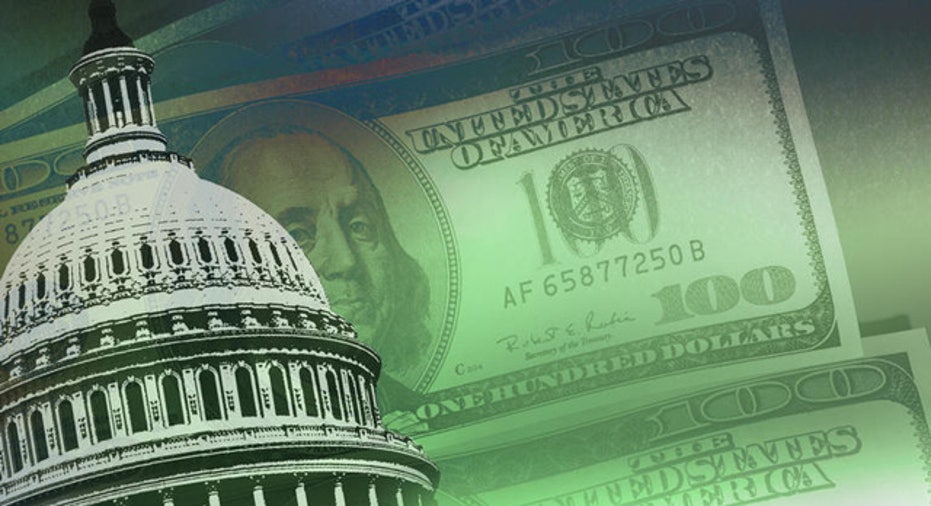Budget Standoff Forcing the Fed's Hand

The all-too predictable Congressional standoff gearing up in Washington, D.C., over funding the government for another year and raising the debt limit is already having a significant impact on the economy.
And that’s without either an actual government shutdown or genuine threat of default if the U.S. can’t pay its bills. (The former seems increasingly likely, the latter a remote possibility.)
Federal Reserve Chairman Ben Bernanke and his colleagues on the Federal Open Market Committee made no secret of the fact that the political shenanigans in Washington played a key role in their decision Wednesday to delay tapering, or scaling back quantitative easing, the central bank’s $85 billion a month bond-buying program.
In its formal statement announcing the decision to maintain the stimulus status quo the FOMC dryly noted “fiscal policy is restraining economic growth.” They might just as well have said “fiscal policy, or lack thereof.”
Then in his press conference following the announcement Bernanke elaborated, saying a government shutdown or failure to raise the debt limit “could have very serious consequences for the financial markets and for the economy.”
“The Federal Reserve's policy,” Bernanke added, “is to do whatever we can to keep the economy on course. And so if these actions led the economy to slow then we would have to take that into account surely.”
And he didn’t stop there.
Bernanke warned that even the all-powerful Fed would be essentially helpless to “offset these shocks” should Congress allow the government to shutdown in October and then fail to raise the debt limit later in the fall.
Bernanke concluded: “I think it's extraordinarily important that Congress and the administration work together to find a way to make sure that the government is funded, public services are provided, that the government pays its bills and that we avoid any kind of event like 2011 which had, at least for a time, a noticeable adverse effect on confidence on the economy.”
The Fed chief was referring to Standard & Poor’s downgrade of U.S. credit in August 2011 during a similar standoff, which jolted financial markets at the time.
Policies 'Hurting the Elderly'
Nearly everyone – economists, analysts, journalists, investors – expected the Fed on Wednesday to announce the beginning of the end of its easy-money policies. When the decision to delay came stock markets responded with euphoria: the Dow Jones Industrial average and the S&P 500 index both closed at all-time highs.
That’s great news for Wall Street and for stock market investors, unless you believe the recent run-up in stocks is a bubble fueled by five years of unprecedented Fed stimulus.
Meanwhile, the unexpected extension of quantitative easing and the Fed’s renewal of its vow to maintain near-zero interest rates for the foreseeable future continues to hurt Mom and Pop investors, especially retirees living off the interest on their savings.
“These government policies are hurting the elderly,” said Bernard Kiely, a financial planner at Kiely Capital Management in Morristown, N.J.
Kiely had been preparing his clients for tapering, believing the timing was right for the Fed to start returning to “normal.” That is, a U.S. monetary policy that doesn’t include massive bond purchases or near-zero interest rates.
Two other obvious concerns related to the Fed’s no-end-in-sight stimulus policies are the threat of runaway inflation and the question of how central bank policy makers plan to unwind a Fed balance sheet that now exceeds $3.6 trillion, an unprecedented figure and more than triple its size at the beginning of the financial crisis.
Furthermore, it’s hardly certain that these policies are working. By the Fed’s own admission, U.S. labor markets aren’t nearly as strong as they might or should be this far along in the recovery. Too much of the recent decline in the unemployment rate has been the result of a shrinking labor force rather than a surge in new jobs.
And Bernanke and his likeminded FOMC colleagues – the policy doves who favor continued stimulus – have promised, if necessary, more of the same if the government shuts down next month, sending shockwaves through an already fragile U.S. economy. Ditto if Congress can’t reach a debt ceiling agreement and the threat of default spurs more talk of credit downgrades, chatter that could rock financial markets and pummel consumer confidence.
Stubbornly high unemployment and a fitful housing market, two keys to the U.S. recovery, have proved vexing to the Fed for over four years now. But at least the Fed has ostensible tools for fixing those maladies.
Against a Congress and administration so divided that no agreement on anything seems possible, the Fed is all but helpless.



















